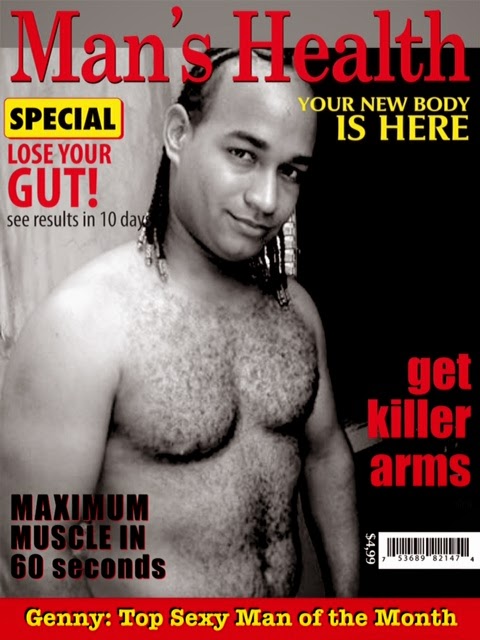
|
| Chicago Police Officer Jason Van Dyke, back middle, leaves the Cook County Jail after posting bond on Monday, Nov. 30, 2015, in Chicago. Van Dyke has been locked up since Nov. 24, when prosecutors charged him with first-degree murder in the shooting death of 17-year-old Laquan McDonald. |
CHICAGO
(AP) -- Federal authorities said an online threat that led the
University of Chicago to cancel classes Monday targeted whites and was
motivated by the police shooting of a black teenager, video of which was
released last week and led to protests.
Jabari
R. Dean, 21, of Chicago, threatened to kill 16 white male students or
staff at the school on Chicago's South Side, according to the criminal
complaint.
Dean, who is black, was arrested
Monday morning. He did not enter a plea later in the day on a charge of
transmitting a threat in interstate commerce in court.
The
threat was posted Saturday, just days after the city released a video
of Officer Jason Van Dyke, who is white, shooting 17-year-old Laquan
McDonald, who was black, 16 times. Van Dyke is charged with first-degree
murder. His bond was set for $1.5 million earlier Monday, and hours
later, he paid the $150,000 needed and was released.
Authorities
said Dean posted online from a phone that he would "execute
approximately ... 16 white male students and or staff, which is the same
number of time (sic) McDonald was killed" and "will die killing any
number of white policemen that I can in the process."
The
criminal complaint said someone tipped the FBI Sunday to a threat that
was posted on a social media website. The FBI was unable to find the
threat online, and was provided a screenshot by the person who reported
the threat.
That led them to Dean, who
admitted to FBI agents that he posted the threat and took it down
shortly after posting it, the complaint said. Despite the threat
mentioning three guns, a prosecutor told Monday's hearing that Dean did
not appear to pose a threat. The complaint did not say whether Dean
possessed any weapons.
Dean is a first-year
undergraduate student in electrical engineering at the University of
Illinois at Chicago, UIC spokeswoman Sherri McGinnis Gonzalez. He wore a
red sweat shirt emblazoned with the name of that school in court.
Phillip
Rutherford, who later identified himself as Jabari's uncle, said loudly
in the courtroom as the hearing adjourned, "Hey Jabari. ... Just be
cool, OK?" Rutherford later told reporters that Jabari was never serious
about an attack and had done something "silly" and "stupid" because
he'd had too much time on his hands.
"He's run out of things to do," Rutherford said.
Jabari's
lawyer declined comment Monday. A judge ordered Dean be held until
Tuesday's bond hearing, when prosecutors will likely agree to let him be
released to his mother.
The University of
Chicago, where President Barack Obama taught law, first alerted students
and staff Sunday night about a threat that mentioned the quad, a
popular gathering place, and 10 a.m. Monday. The school urged faculty,
students and non-essential staff to stay away from the Hyde Park campus
through midnight Monday and told students in college housing to stay
indoors.
The cancellations of classes and
activities affected more than 30,000 people, though the University of
Chicago Medical Center was open to patients.
The
normally bustling campus was almost desolate Monday morning as Chicago
Police Department and campus security vehicles patrolled streets.
Security staff guarded campus walkways, including the quad mentioned in
the threat. The time mentioned in the threat came and went without
incident.
The university had said the decision
to close was taken following "recent tragic events" at other campuses
nationwide. On Oct. 1 at Umpqua Community College in Roseburg, Oregon, a
gunman opened fire and killed nine people. Other shootings have
happened in Arizona and Tennessee.
Classes will resume Tuesday after what university President Robert Zimmer said was a "challenging day."
Students
closed their books, shut down their laptops and hurried home Sunday
when the school first alerted people to the threat, according to student
body president Tyler Kissinger. "I work in the campus coffee shop and
when people got the notice (announcements and online) they really
cleared out of here immediately," the 21-year-old senior said.
Junchen Feng, who's pursuing a doctorate, said the threat raised his awareness about gun violence in Chicago and beyond.
"For
the first time I was thinking about people who live in Syria,
Afghanistan, Pakistan ... where they live under constant threats of
death and violence," the student from China said. "It's a mindset that
we just don't have."
Police have said that
McDonald was carrying a knife and an autopsy revealed that he had PCP, a
hallucinogenic drug, in his system. Cook County State's Attorney Anita
Alvarez said last week in announcing the first-degree murder charge
against Van Dyke that the 3-inch blade recovered from the scene had been
folded into the handle.
In the audio-free
video, McDonald can be seen walking down the middle of a four-lane
street. He appears to veer away from two officers as they emerge from a
vehicle, drawing their guns. One of the officers, Van Dyke, opens fire
from close range. McDonald spins around and crumples to the ground. The
officer continues to fire.
Van Dyke's
attorney, Dan Herbert, maintains that Van Dyke feared for his life,
acted lawfully and that the video does not tell the whole story. He told
reporters Monday that Van Dyke "absolutely" can defend his actions in
court and that the officer is "very scared about the consequences he is
facing."


















